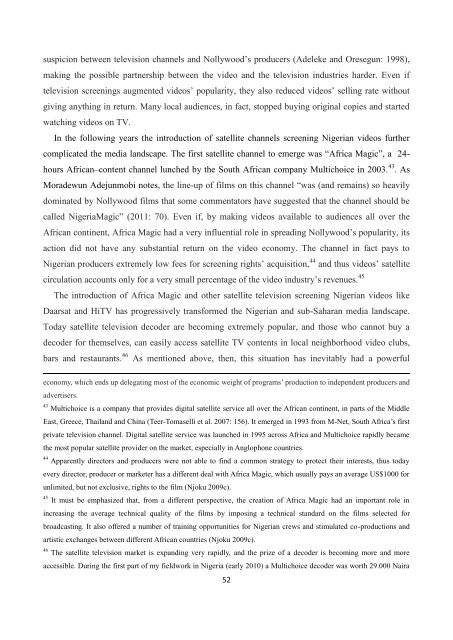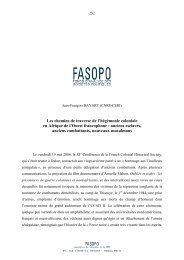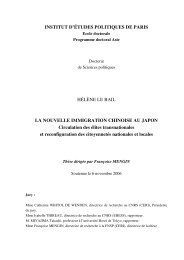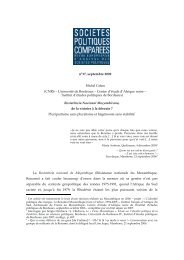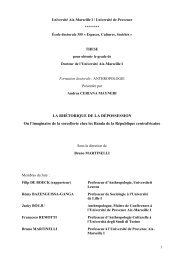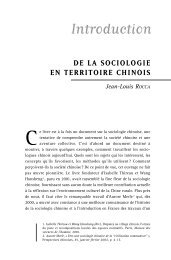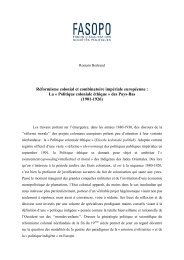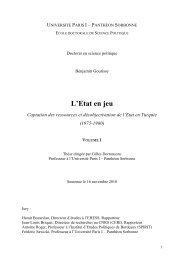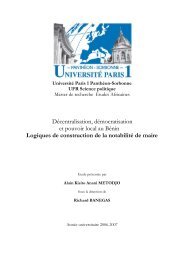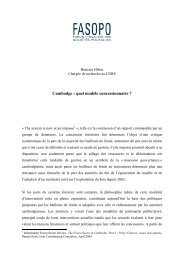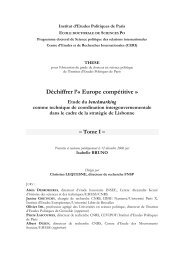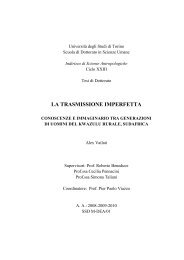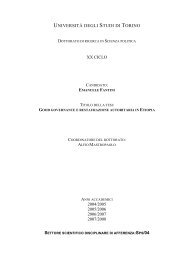Create successful ePaper yourself
Turn your PDF publications into a flip-book with our unique Google optimized e-Paper software.
suspicion between television channels and Nollywood’s producers (Adeleke and Oresegun: 1998),making the possible partnership between the video and the television industries harder. Even iftelevision screenings augmented videos’ popularity, they also reduced videos’ selling rate withoutgiving anything in return. Many local audiences, in fact, stopped buying original copies and startedwatching videos on TV.In the following years the introduction of satellite channels screening Nigerian videos furthercomplicated the media landscape. The first satellite channel to emerge was “Africa Magic”, a 24-hours African–content channel lunched by the South African company Multichoice in 2003. 43 . AsMoradewun Adejunmobi notes, the line-up of films on this channel “was (and remains) so heavilydominated by Nollywood films that some commentators have suggested that the channel should becalled NigeriaMagic” (2011: 70). Even if, by making videos available to audiences all over theAfrican continent, Africa Magic had a very influential role in spreading Nollywood’s popularity, itsaction did not have any substantial return on the video economy. The channel in fact pays toNigerian producers extremely low fees for screening rights’ acquisition, 44 and thus videos’ satellitecirculation accounts only for a very small percentage of the video industry’s revenues. 45The introduction of Africa Magic and other satellite television screening Nigerian videos likeDaarsat and HiTV has progressively transformed the Nigerian and sub-Saharan media landscape.Today satellite television decoder are becoming extremely popular, and those who cannot buy adecoder for themselves, can easily access satellite TV contents in local neighborhood video clubs,bars and restaurants. 46 As mentioned above, then, this situation has inevitably had a powerfuleconomy, which ends up delegating most of the economic weight of programs’ production to independent producers andadvertisers.43 Multichoice is a company that provides digital satellite service all over the African continent, in parts of the MiddleEast, Greece, Thailand and China (Teer-Tomaselli et al. 2007: 156). It emerged in 1993 from M-Net, South Africa’s firstprivate television channel. Digital satellite service was launched in 1995 across Africa and Multichoice rapidly becamethe most popular satellite provider on the market, especially in Anglophone countries.44 Apparently directors and producers were not able to find a common strategy to protect their interests, thus todayevery director, producer or marketer has a different deal with Africa Magic, which usually pays an average US$1000 forunlimited, but not exclusive, rights to the film (Njoku 2009c).45 It must be emphasized that, from a different perspective, the creation of Africa Magic had an important role inincreasing the average technical quality of the films by imposing a technical standard on the films selected forbroadcasting. It also offered a number of training opportunities for Nigerian crews and stimulated co-productions andartistic exchanges between different African countries (Njoku 2009c).46 The satellite television market is expanding very rapidly, and the prize of a decoder is becoming more and moreaccessible. During the first part of my fieldwork in Nigeria (early 2010) a Multichoice decoder was worth 29.000 Naira52


